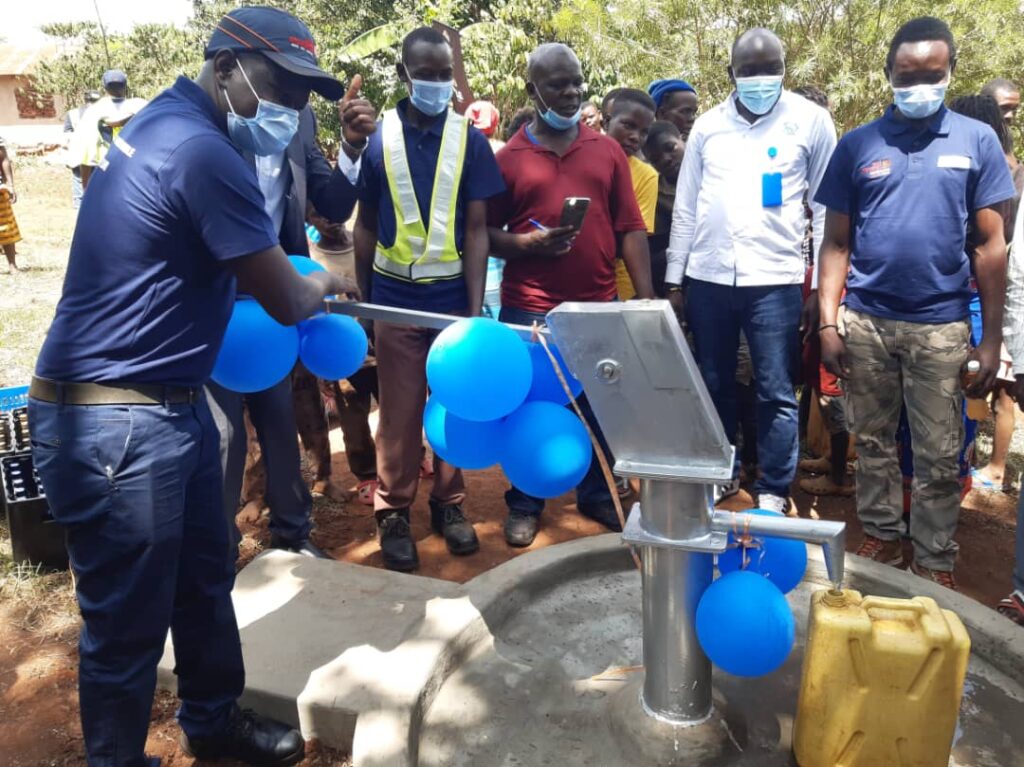As Uganda joins the rest of the world to commemorate the 2022 World Environment Day (WED), Nile Breweries limited (NBL), a subsidiary of AB InBev, the world’s largest brewer has reechoed its commitment to protect the environment.
“We depend on healthy, natural environments and thriving communities to brew our beer and we are committed to improving our environment and communities so that our consumers can continue sharing experiences with us for the next 100+ years,” says Clare Asiimwe, Sustainability Manager Nile Breweries.
World Environmental day is celebrated worldwide every year on 5th June. This year’s celebration is themed ‘Only One Earth’, with focus on living sustainably in harmony with nature.
“This year’s spotlight on Water, Carbon, and Recycling; gives us an opportunity to reflect on our sustainability goals which include; smart agriculture, water stewardship, circular packaging and climate action, all aimed at environmental protection and sustainably,” said Asiimwe.
“As part of its broad long term environmental sustainability strategy, NBL has been working hand in hand with communities, government and private stakeholders to ensure that they create a sustainable environment for all, in communities where they operate and beyond,” she added.
Nile breweries Limited under its parent company, AB InBev in partnership with the World Wildlife Fund (WWF), Ministry of Water and Environment, Directorate of Water Resources Management, (DWRM), Victory Water Management Zone and National Environment Management Authority (NEMA) is supporting interventions in River Rwizi Catchment area in Western Uganda to ensure restoration and protection of the River Rwizi Watershed.
Duli David, the Country Director WWF Uganda Country Office, while commenting on the project said; “we have mobilized communities in the river Rwizi catchment area, put in place structures and created awareness about the need to protect this water source that supports over 99,000 people in Western Uganda. What needs to be done next is to scale and create resilience and sustainability.”
The brewer also ensures high water use efficiency of produced across its operations by implementing good practices like Dry Floor packaging, modulation, optimized cleaning practices, waste water recovery from its Bio treatment plant among others. When plant operations at Mbarara Brewery started in 2013, the water usage was 5hl/hl of beer produced, this has since reduced to 2.6hl/hl of beer produced.
Asiimwe further reveals that the brewer continuously participates in tree planting campaigns at its sites and communities. “Next week we shall be planting trees on our sites and communities in Mbarara and Jinja, most specifically Njeru Primary School and use the opportunity to spread awareness on environmental conservation to students,” she said. The brewer will also commission water harvesting system for the primary school having donated a 5,000Litre water tank to capture rainwater for utilization at the school which has over 400
scholars.
NBL will also donate plastic waste disposal bins to Jinja Hospital to improve waste segregation practices to support reducing waste, ensuring proper waste disposal, and enhancing recycling in communities. With an average 95% of all the waste generated in its production reused and recycled, the company operates a substantial returnable packaging system to promote circular packaging and reducing material use and wastage.
“Our business is one that is closely tied to the natural environment. Every day we are creating a future with more cheers with sustainable practices, products that support local farms and communities, and innovations that meet customer and consumer demands,” Asiimwe shares.
Currently NBL under its Smart Agriculture goal, continues to innovate to support farmers around the world to be skilled, connected and financially empowered.
“We are also working at reducing carbon footprint across our value chain by 25% through high energy efficiencies, green logistics and 100%of our purchased electricity from renewable sources. Our plants are implementing solar PV systems and use of Biomass boilers,” she adds.
In addition to its sustainability goals, NBL is also ensuring that all policies and laws that have been put in place are equally followed and adhered to.
“Regulations is key for our business, we ensure this through routine monitoring and assessment both internally by the authorities,” says Asiimwe. She highlights that the brewer produces its products in the most environmentally responsible way while maintaining the commitment to quality. “At NBL, we believe that neither production nor financial objectives hall excuse Environment non- compliance.”

